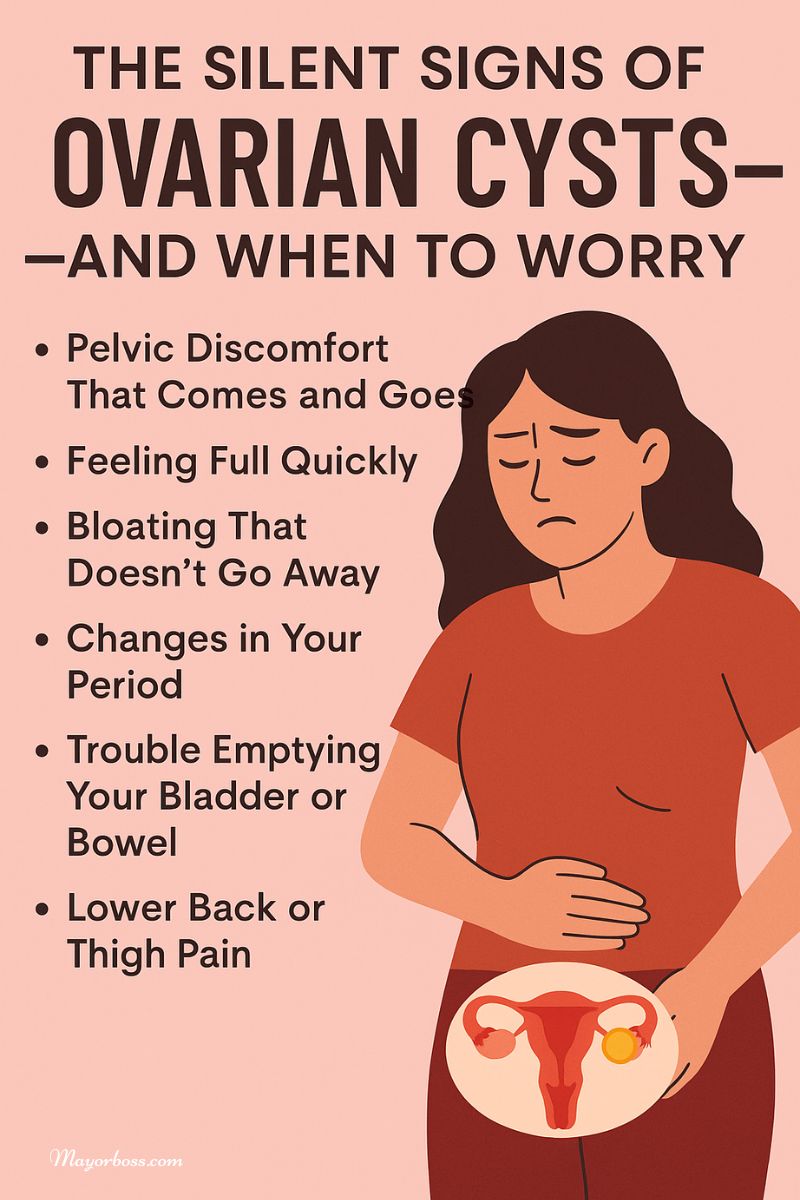5 Signs You Have Cervicitis
Cervicitis, a fairly common condition, involves inflammation of the cervix. The cervix is a critical part of the female reproductive system, located at the lower part of the uterus, connecting it to the vagina. Sometimes, the inflammation can be so subtle that you may not even realize you have cervicitis until you go for a routine gynecological exam. However, at other times, it can cause a range of uncomfortable symptoms that can significantly affect your quality of life.
Dr. Natalia Hapych, a highly regarded family doctor, says, “Cervicitis is usually caused by sexually transmitted infections (STIs) like gonorrhea and chlamydia, but it can also result from physical or chemical irritants, like douches or allergens.” She further explains, “Awareness of its symptoms and early diagnosis can prevent complications, so it’s crucial for women to be vigilant about their reproductive health.”

Signs of Cervicitis
Unusual Vaginal Discharge
One of the main symptoms of cervicitis is a change in vaginal discharge. You may notice an increase in the volume of discharge or alterations in its color and consistency. It may appear grayish or yellow and could have a strong, unpleasant odor. This can be due to the increased production of mucus and pus from inflamed cervical cells.
Pain During Intercourse
Experiencing pain during sexual intercourse can be another sign of cervicitis. Dr. Hapych warns, “If you start to feel discomfort or pain during sexual activities, it’s time to schedule a visit with your healthcare provider. Pain during sex is not normal and needs to be evaluated.”
Bleeding Post Intercourse
Postcoital bleeding, or bleeding after sex, is a symptom that should not be ignored. It might indicate cervicitis or other serious conditions. “Any time you notice bleeding after intercourse, it’s important to seek immediate medical attention. It can be a sign of cervicitis, but it can also indicate other conditions, like cervical dysplasia or even cervical cancer,” advises Dr. Hapych.
Lower Abdominal Pain
Cervicitis can sometimes cause discomfort or pain in the lower abdomen, particularly in the pelvic area. The pain might be dull or sharp, and its intensity can vary. It’s vital to listen to your body and seek help if you experience persistent or severe abdominal pain.
Urinary Problems
Urinary symptoms such as pain during urination or an increased urge to urinate can be linked to cervicitis. The inflammation might affect the neighboring bladder and urethra, leading to these urinary disturbances.
The Diagnosis Process
If you notice any of these signs or have any concerns, I highly recommend reaching out to your doctor,” Dr. Hapych advises. The diagnosis of cervicitis often involves:
- Medical History: Your doctor will first gather information about your symptoms and sexual history.
- Physical Examination: A pelvic examination is usually carried out to check for signs of inflammation.
- Lab Tests: Samples of your vaginal fluid or cervical discharge may be taken for lab testing to determine the cause of cervicitis.
Prevention and Treatment
Knowing the signs of cervicitis is the first step, but understanding how to prevent and treat the condition is equally important. Here are some guidelines to keep in mind:
- Practice Safe Sex: Using condoms can protect you from STIs, one of the most common causes of cervicitis. Dr. Hapych says, “Regular screening for STIs, especially if you have multiple sexual partners, is critical in preventing cervicitis.”
- Avoid Irritants: Limit the use of potential irritants, such as douches or spermicides, which can disrupt the balance of bacteria in the vagina and cause inflammation.
- Regular Check-ups: Regular gynecological exams can detect cervicitis even when there are no apparent symptoms.
The treatment for cervicitis typically involves addressing the underlying cause. If an STI is the cause, antibiotics are usually prescribed. In some cases, where cervicitis persists despite treatment, further interventions such as cryotherapy (freezing the cervix) or laser therapy may be needed.
Cervicitis is a common condition that, while often silent, can cause significant discomfort and complications if not addressed promptly. It is crucial to stay alert to potential symptoms and seek medical help when in doubt.






